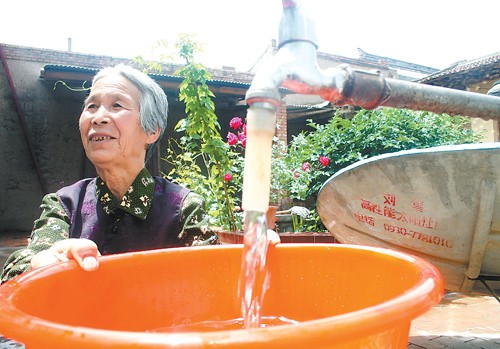China is planning to accelerate its water conservation programs, with the rural areas and western and central regions receiving priority.
During his visit to the Ministry of Water Resources (MWR) on Monday, Chinese Premier Li Keqiang said that local governments must step up the 172 water conservation projects as finishing them is socially and economically important.
Li wants to make western and central regions priority to tackle regional water problems. The water programs include reservoirs, irrigations and water diversion projects.
According to Li, the projects will not only save water, but will also improve rural income, strengthen the industry, create new jobs, attract investors and even aid in the stabilization of China's economy.
All of the water conservation projects, whether underway or still in the planning stage, must be accelerated to help in driving China's economic growth.
"The projects will have significant influence on water use, the environment, food security, fighting poverty and driving growth," said MWR senior engineer Wang Annan.
The Chinese premier mentioned that the significance of water conservation is equal to that of railway construction projects and urban area operations, which are seen as effective measures to uplift the economy.
During the third quarter, China's economy grew by 7.3 percent, which is a bit lower compared to the first two quarters, but still puts the country in a good position.
Li also hopes that the market would be given more importance. He also gave a suggestion about a new financing method to encourage private firms to be involved in the programs.
According to a report earlier this year, China will be providing safe drinking water to 60 million people this year. The premier urged the Chinese government to participate in order to achieve the commitment.
China's government pledged to provide clean drinking water for 247 million people in the rural areas and 34.37 million teachers and students during the 2011-2015 period.
The country's water resources per capita are only 28 percent of the worldwide average due to unfortunate droughts and floods.



























